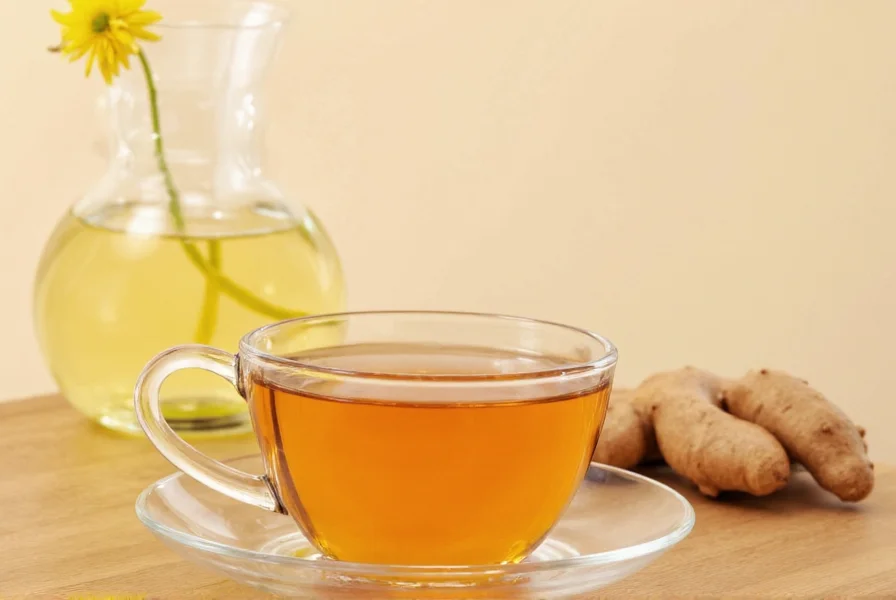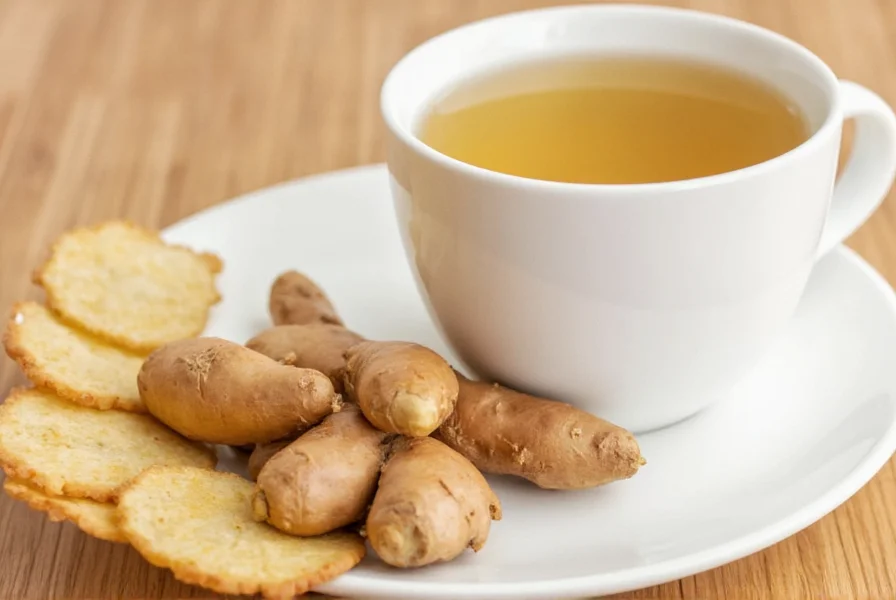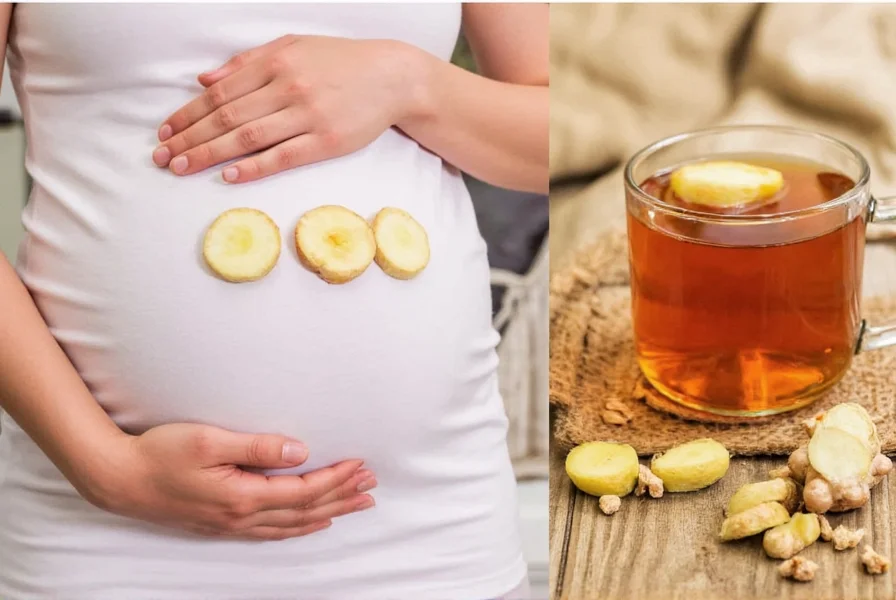For many expectant mothers seeking natural relief from morning sickness, ginger tea offers a promising solution. This ancient remedy has gained scientific validation for its effectiveness in managing pregnancy-related nausea and vomiting. However, understanding the appropriate usage, potential limitations, and safety considerations is essential for making informed decisions during this critical time.
What Research Says About Ginger Tea and Pregnancy
Multiple clinical trials have investigated ginger's effects on pregnancy nausea. A comprehensive review published in Nutrition Reviews analyzed data from six clinical trials involving over 600 pregnant participants. The analysis concluded that ginger supplementation significantly reduced nausea symptoms compared to placebo, with no increased risk of adverse pregnancy outcomes.
The American College of Obstetricians and Gynecologists (ACOG) recognizes ginger as one of the non-pharmacological approaches that may help manage nausea and vomiting of pregnancy. Their guidelines note that ginger appears to be safe for short-term use during pregnancy, though they recommend discussing any supplement use with a healthcare provider.
Benefits of Ginger Tea During Pregnancy
Ginger tea offers several potential benefits for pregnant women:
- Nausea relief: Particularly effective for morning sickness during the first trimester
- Digestive support: Helps with common pregnancy-related digestive issues
- Natural alternative: Provides a non-pharmaceutical option for symptom management
- Hydration: Contributes to daily fluid intake needs
- Antioxidant properties: Contains beneficial compounds that support overall health

Recommended Ginger Tea Dosage During Pregnancy
When considering how much ginger tea can I drink while pregnant, moderation is key. Most healthcare providers recommend:
| Time Period | Recommended Daily Amount | Equivalent To |
|---|---|---|
| First Trimester | Up to 1 gram of ginger | Approximately 1-2 cups of standard ginger tea |
| Second Trimester | Up to 1 gram of ginger | Approximately 1-2 cups of standard ginger tea |
| Third Trimester | Up to 1 gram of ginger | Approximately 1-2 cups of standard ginger tea |
The concentration of ginger in commercially prepared teas can vary significantly. When preparing ginger tea pregnancy dosage recommendations at home, use no more than one 1/2-inch slice of fresh ginger per cup of water. For store-bought tea bags, follow the manufacturer's instructions but limit consumption to 1-2 cups daily.
Potential Concerns and When to Exercise Caution
While is ginger tea safe during first trimester pregnancy is generally answered positively, certain situations warrant caution:
- History of miscarriage: Women with recurrent pregnancy loss should consult their provider before using ginger
- Bleeding disorders: Ginger may have mild blood-thinning properties
- Gestational diabetes: Some ginger teas contain added sugars
- Upcoming delivery: Some providers recommend discontinuing ginger one week before your due date
- Multiple pregnancies: Women carrying twins or multiples should discuss ginger use with their healthcare provider
A 2020 study in Complementary Therapies in Clinical Practice noted that while ginger is generally safe, extremely high doses (exceeding 1,500 mg daily) might potentially affect fetal sex hormones. This reinforces the importance of sticking to recommended amounts when considering ginger tea pregnancy dosage recommendations.
Ginger Tea vs. Other Ginger Forms During Pregnancy
Not all ginger products are equal when considering is fresh ginger safe during pregnancy. Here's how different forms compare:
- Tea (freshly brewed): Most recommended form; allows for controlled dosage
- Commercial tea bags: Convenient but check for additional ingredients
- Ginger candies: Often contain high sugar content; harder to control dosage
- Supplements/capsules: Concentrated; harder to moderate intake; consult provider
- Ginger ale: Typically contains minimal actual ginger and high sugar
For those specifically researching ginger supplements vs ginger tea during pregnancy, tea generally provides a safer, more controlled option with lower risk of overconsumption.
Choosing Quality Ginger Tea for Pregnancy
When selecting ginger tea during pregnancy, consider these factors:
- Look for single-ingredient teas with no added herbs that haven't been verified as pregnancy-safe
- Avoid blends containing herbs like licorice root, which may not be recommended during pregnancy
- Choose organic options when possible to minimize pesticide exposure
- Check for certifications from reputable third-party testing organizations
- Read ingredient labels carefully for potential allergens or additives

When to Consult Your Healthcare Provider
Before incorporating ginger tea into your pregnancy routine, especially if you have:
- Pre-existing medical conditions like diabetes or hypertension
- History of pregnancy complications
- Concerns about potential medication interactions
- Experiencing severe nausea that doesn't improve with home remedies
Your healthcare provider can offer personalized guidance based on your specific health profile and pregnancy progression. They can help determine whether ginger tea represents an appropriate option for your natural remedies for pregnancy nausea needs.
Final Considerations
Ginger tea represents one of the most well-researched natural options for managing pregnancy-related nausea. Current evidence suggests it's safe for most pregnant women when consumed in moderation. However, individual circumstances vary, making consultation with your healthcare provider an essential step before regular use.
Remember that while ginger tea can help with morning sickness, it's not a substitute for proper prenatal nutrition and medical care. If you experience severe or persistent nausea and vomiting (hyperemesis gravidarum), seek medical attention promptly.











 浙公网安备
33010002000092号
浙公网安备
33010002000092号 浙B2-20120091-4
浙B2-20120091-4